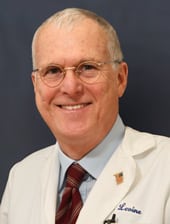After reading an article entitled “The Geezers’ Crusade” by columnist David Brooks in the Op-Ed pages of the New York Times last week I felt compelled to comment on it. The article begins on an encouraging note, pointing out how society’s views of human aging are evolving from negative to optimistic. Once viewed as a period of withdrawal and deterioration, Mr. Brooks notes that human senescence is now regarded as a period of development where people can become happier and personalities more vivid and emotionally attuned. The second part of the article deals with the politics of aging and is not so upbeat.
Mr. Brooks characterizes the elderly as greedy parasites on society – taking money, freedom and opportunity from those in the younger generation. He further advocates a “spontaneous social movement” in which elders band together for the purpose of nonselfishness, to relinquish their riches and power to the younger generation.
In this context, it is not surprising that the column’s title employs a term frequently directed toward elderly persons when they are characterized in a negative light. Paul Kleyman in his Encyclopedia of Aging noted that the term geezer is increasingly used by political pundits to diminish sympathy for the beneficiaries of public policies they would like to destroy. It is instructive to look at the history of the word geezer in its original framework and place it into perspective with Mr. Brooks’ column.
According to podictionary.com the word geezer emerged 135 years ago in an English book entitled The Truth About the Stage. Available online in a scanned version, this is an insider’s exposé of the world of theater written by an actor named Corin. A twenty-five year veteran of the stage, he writes of poverty-stricken actors aspiring for fame, many of whom are alcoholics or lacking in talent. He recounts his itinerant life as a stage performer and personalities he met along the way. In one adventure Corin and a fellow actor stay in a dilapidated Scottish boarding house owned by an elderly couple. The friends conspire to obtain meals and lodging free of charge and in the process refer to their victims as “old geezers.” The original use of the word geezer by Corin’s characters was clearly intended to diminish sympathy for the elderly couple to justify stealing from them.
In 1969, Dr. Robert N. Butler coined the term ageism to refer to the stereotypic and negative characterization of old age. He defined ageism as a combination of three elements: 1) prejudicial attitudes, 2) discriminatory practices; and 3) institutional practices that perpetuate the negative stereotype. The term geezer clearly denigrates old people and lumps them together to serve the purposes of authors such as Brooks who feel resentful that they consume a larger share of resources and wish to have these entitlements diminished.
It is certainly true that older Americans consume a disproportionate amount of healthcare dollars. However there are better and more thoughtful ways to modify the system to decrease costs than simply cutting entitlements. We can start by recognizing that our philosophy of “more care is better” is flawed, and the high cost technological approach to medicine does not work for many seniors. American society is aging rapidly and the healthcare infrastructure is unprepared for the demographic onslaught, particularly physicians who are often gatekeepers to our high cost system. Principles of proper geriatric care are based on controlling excessive pharmaceuticals and minimizing hospitalizations and procedures, while focusing on physical function and quality of life.
Geriatric medicine has sat on the sidelines for too long and must be developed as a viable specialty that is attractive to young medical graduates. There are currently only 7,600 board certified geriatricians for an aging population that comprises 12 percent of American citizens and is growing quickly. To approach this goal there must be immediate and radical change in the curriculum of American medical education – an opinion eloquently expressed on the same Op-Ed page last year by Dr. Rosanne Leipzig in a column entitled The Patients Doctors Don’t Know. In addition financial priorities must be rearranged, decreasing reimbursement for highly specialized, procedure oriented and technology-based care while increasing incentives to practice primary care for the elderly.
Geriatric medicine should no longer be ignored in the healthcare reform debates. I agree with Mr. Brooks that there should be a spontaneous social movement which will, in his words, “make the unthinkable thinkable.” This movement should recognize and demand compassionate medical care based on humanistic values that is cost effective while facing realities at the far end of the human life span. This will be a start to cutting healthcare costs and diverting valuable resources to the younger generation.
* * * * * * * * * * * * * * *
For further resources please refer to Healthcare Strategies for an Ageing Society, and the Institute of Medicine Report entitled Retooling for an Aging America: Building the Health Care Workforce.
To access all blog posts on Geriatric Medicine click here.

